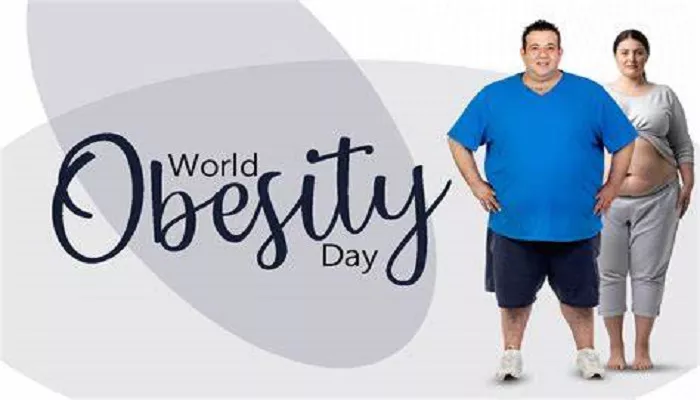On May 11, 2025, the 8th World Obesity Day was observed. The latest statistics show that among Chinese adults, about 34.3% are overweight and 16.4% are obese. This means that over half of Chinese adults are grappling with overweight or obesity issues.
When the scale shows an upward trend, many people immediately think of giving up milk tea and desserts. However, they often ignore the fatty braised pork and oily stir – fried green vegetables on their plates. Recently, Mr. Wang, a white – collar worker in Beijing, received an alarming health report. After three months of cutting out sugar, the 35 – year – old saw his weight increase instead of decrease, and his body fat percentage went up. The doctor discovered that the takeout he ordered for lunch each day contained as much as 60 grams of oil per serving, which is more than double the recommended daily edible oil intake for Chinese residents.
He Li, a researcher from the Institute of Nutrition and Health at the Chinese Center for Disease Control and Prevention, pointed out that this “excessive oil intake” is not an isolated incident. When trying to lose weight, people should not only focus on reducing sugar but also pay close attention to cutting down on oil consumption.
The Underestimated Cause of Obesity
Overeating high – energy and high – fat foods not only raises the risk of overweight and obesity but also disrupts the balance of energy intake and expenditure, as well as fat synthesis and breakdown. A study shows that for every 1mmol/L increase in “bad cholesterol (low – density lipoprotein cholesterol)” in the blood, the risk of heart vessel blockage rises by nearly 30%. It’s like grease constantly building up in the heart’s “oil pipes.” If fried foods and fatty meats make up too large a part of the daily diet, the efficiency of pancreatic β cells, which process blood sugar in the body, may be halved. This is a major cause of the high incidence of type 2 diabetes.
Do Chinese Consume More Oil Than Milk?
The 2015 – 2017 Monitoring Report on the Nutrition and Health Status of Chinese Residents reveals that the average daily dairy product intake per Chinese urban and rural resident is only 25.9 grams. In contrast, the daily cooking oil intake is 43.2 grams. This is not only nearly 50% higher than the recommended amount (25 – 30 grams per day) but also much more than the amount of milk consumed. So, the statement that Chinese consume more oil than milk is no exaggeration.
Losing Weight, More Than Just Cutting Sugar
He Li notes that when it comes to weight loss, people usually focus on controlling sugar and carbohydrates while neglecting oil intake. Each gram of fat (oil) contains 9 kilocalories of energy, 2.25 times that of sugar (4 kilocalories per gram). For example, consuming 30 grams of cooking oil (about 2 tablespoons) generates 270 kilocalories, roughly equivalent to the energy in 1.5 bowls of rice. People who have long ignored fat control may still consume an extra 500 – 800 kilocalories daily from cooking oil and fatty foods, even if they completely avoid sugar. Urban white – collar workers like Mr. Wang, who often eat out or order takeout due to work, may not realize that among the top – selling takeout dishes, such as Kung Pao chicken, boiled beef in chili sauce, and dry pot cauliflower, each serving uses over 50 grams of oil. These oils coat the food like an “energy armor,” easily breaching the body’s metabolic defenses. Eating this way for a long time, even with controlled sugar and salt intake, will lead to obesity.
Tips for Scientific Oil Reduction
It is estimated that about half of Chinese residents’ dietary fat intake comes from cooking oil. Using an oil – control pot can help people manage their oil use. When cooking, it is advisable to choose vegetable oils like soybean oil, rapeseed oil, peanut oil, olive oil, tea seed oil, sunflower oil, and salad oil, and avoid animal oils as much as possible. Opt for cooking methods such as steaming, boiling, blanching, and cold mixing, and reduce frying and deep – frying. Also, learn to read the nutrition labels of packaged foods and choose those with lower fat content.
When ordering food or takeout, balance meat and vegetable dishes. Choose light – flavored dishes and avoid those with strong flavors. You can ask the merchant in the order remarks to use less salt, oil, and sugar. Another option is to rinse the food in plain boiled water before eating.
He Li especially reminds parents that a person’s taste preferences develop gradually from a young age. Cultivating a preference for light – flavored food during childhood and adolescence is crucial. Therefore, it is important to instill healthy eating concepts in children early and help them develop a light, non – greasy eating habit that will benefit them throughout their lives.
Related topics


